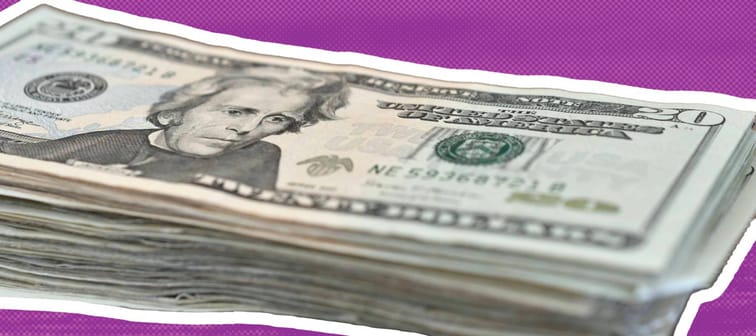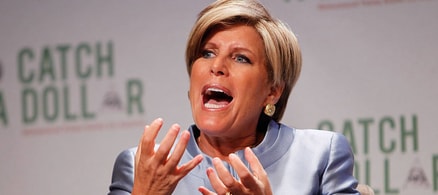Millions don’t max out their 401(k) match
A 401(k) match is a common program that sees your company double up whatever you contribute to a workplace retirement account, up to a certain limit.
This perk is part of your compensation package when you get a job, so if you don’t take full advantage, it’s like you’re not taking part of your salary.
Say you make $60,000 a year, and your employer offers a dollar-for-dollar match up to 6% of your salary. That means the maximum your employer will give you is $3,600 each year.
But if you only put $2,000 into your 401(k), your employer is only putting in $2,000 — and you’re leaving $1,600 on the table.
Opportunities like these don’t come around often in life, and yet 17.5 million Americans are guilty of not cashing in on the full offer they receive, according to a survey by MagnifyMoney.
More: How much money do you need to retire?
Meet Your Retirement Goals Effortlessly
The road to retirement may seem long, but with WiserAdvisor, you can find a trusted partner to guide you every step of the way
WiserAdvisor matches you with vetted financial advisors that offer personalized advice to help you to make the right choices, invest wisely, and secure the retirement you've always dreamed of. Start planning early, and get your retirement mapped out today.
Get StartedHow will the Secure Act 2.0 change things?
It’s not like retirement saving isn’t important to Americans, with 71% of people calling “living comfortably in retirement” a top life goal in a 2022 Principal Financial Group survey.
Yet roughly half of Americans aren’t confident their savings are enough or have confidence in their retirement planning.
Under the Secure Act 2.0, workers will be automatically enrolled in a 401(k) at a contribution rate of 3% of their pay. Assuming you don’t opt out, the contribution rate would then increase by 1% annually until it hits a maximum of 10%.
Read more: 10 best investing apps for 'once-in-a-generation' opportunities (even if you're a beginner)
The legislation also expands what you can do with your 401(k) contributions, and many employers are buying in.
A 2022 survey of over 360 employers by business advisory firm WTW found 38% plan to allow employees to divert their contributions to things like reducing student loan debt, adding to emergency savings or topping up a health savings account — all while still receiving a company match on those amounts.
About 28% of employers surveyed also plan to boost their plans by doing things like increasing the automatic deferral amount.
Why don’t people contribute more?
The Principal survey says 62% of workers list employer-match contributions as a top criteria for reaching their retirement goals.
But when it comes to knowing about and contributing to 401(k) plans, the MagnifyMoney survey shows a small number of respondents say they don’t understand how these retirement plans work (6%) or don’t know whether their company offers a match (17%).
Some employees (12%) say they want to wait until they’re older to contribute. But as any financial expert will tell you, contributing as soon as possible is critical since it gives your investments more time to grow.
The biggest reason why employees don’t take full advantage is affordability; over a third of respondents to the MagnifyMoney survey say they just can’t contribute as much as they’d like. That makes sense, especially at a time when many families’ budgets are being stretched to the breaking point.
More: How to Pay Less Taxes?
Trade your favorite stocks any time
Investing doesn't have to be hard. Robinhood is the only place you can trade stocks, options and ETFs 24 hours a day, 5 days a week, all still commission-free. Start building your portfolio with as little as $1.
Get StartedHow to start taking full advantage
When this much money is on the line, you’ll want to set up a talk with your HR representative right away.
Prioritizing your 401(k) over other saving and investing options is often a smart move, at least until you max out your company match. One exception could be building up your emergency savings — in a crisis, pulling money out of a 401(k) early can trigger costly penalties.
WATCH NOW: Video: Suze Orman says cash-strapped Americans should never tap their 401(k)
If you’ve got enough money to spare, your first step should be setting up automatic withdrawals from your paycheck. A “set-it-and-forget-it” approach will ensure you get the maximum match.
Keep in mind that the new legislation means you could have multiple options for what you do with your contributions in the future.
Remember you can always invest more than the amount your employer will match. And since these automatic withdrawals typically come from your pre-tax income, you won’t need to pay taxes on your contributions.
Sponsored
Meet Your Retirement Goals Effortlessly
The road to retirement may seem long, but with WiserAdvisor, you can find a trusted partner to guide you every step of the way
WiserAdvisor matches you with vetted financial advisors that offer personalized advice to help you to make the right choices, invest wisely, and secure the retirement you've always dreamed of. Start planning early, and get your retirement mapped out today.








